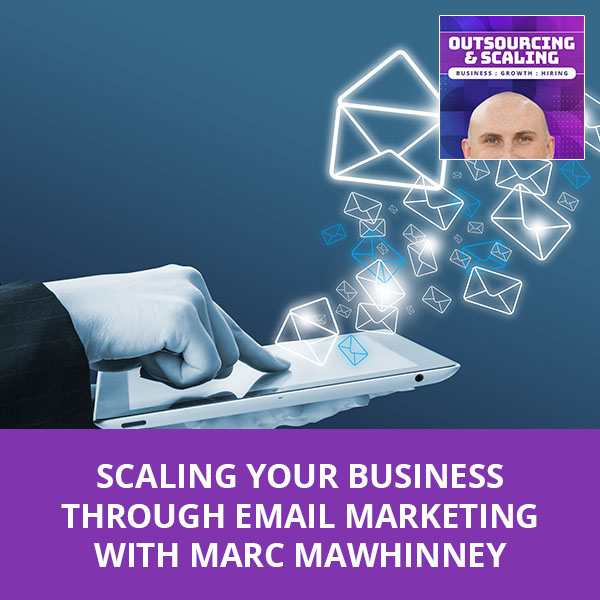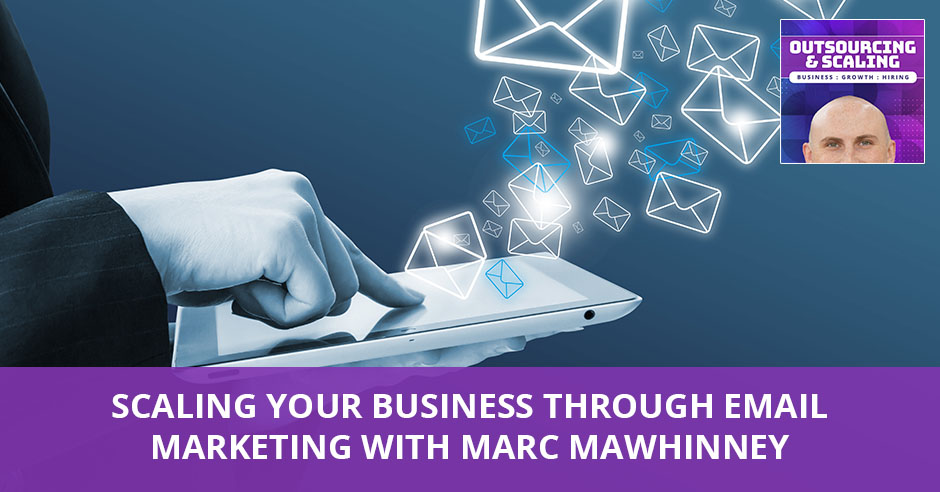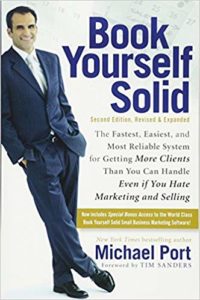


—
Listen to the podcast here:
[smart_track_player url=”https://www.podetize.com/statsapi/www.podetize.com/wp-content/uploads/fileuploads/11-5b145ef137b51b3d1af0633e9305c43d/04/2019/591512fd2e5a9dd9b5a555246b08d748.mp3″ title=”Scaling Your Business Through Email Marketing with Marc Mawhinney” artist=”Nathan Hirsch” image=”https://freeup.net/wp-content/uploads/2019/04/OAS.png” ]
Download the audio file here.
Scaling Your Business Through Email Marketing with Marc Mawhinney
We are here with Marc Mawhinney. He owns a Facebook group called The Coaching Jungle. If you’re a business coach out there, I highly recommend joining the group. There is a lot of great insight. Marc, why don’t you give us a little bit of a background on yourself?
In a nutshell, I’m all about helping coaches get more clients without paid advertising. I had been doing this since 2014. Before that I had a life in real estate, I say in the stone ages back in my twenties. For about a decade, I was in real estate here in Canada and then switched to coaching in 2014 and the rest is history. I’m having a lot of fun with it. I’m a big fan of coaching and what it can do, but I think we’re going to chat a little bit about email marketing and daily emails and stuff. This can apply to any online entrepreneur at all and not just coaches.
I definitely want to dive into that. First, I want to talk a little bit more about coaches because I think we have a lot of readers out there. I know FreeeUp has a lot of clients that are coaches. What are the things that separate a successful coach from an unsuccessful coach because I feel like now when you got courses, you got Amazon, you’ve got coaches? It’s one of the very more popular things that people are getting into. What separates the successful ones from the not successful?
For the actual art of coaching, there are a few important things. First of all, coaches should be good listeners, which is a challenge for me. I like to hear the sound of my own voice. You should be a good listener and ask good questions. Coaching isn’t telling people what to do, which a lot of people think it is, you tell people this is what you should do. In terms of the art of coaching, there are important skills like that. What I think is really important for coaches and what a lot of new ones neglect and why they struggle is they don’t realize that coaches are entrepreneurs, you’re running a business. Whenever I meet a coach, whether it be in person or virtually and I ask them the question, I don’t say, “Why are you a coach?” I usually say, “Why did you start a coaching business?”
I combine the two words, coaching and business, which doesn’t sound like a big difference, but it is an important distinction. You are running a business. I find that a lot of coaches think, “I’ll get started. I’ll put up a website. I have people rushing through the virtual doors. I’ll spend 80%, 90% of my time coaching and the other 10% or 20% of the time on taking care of a little bit of paperwork and a little bit of marketing,” but it’s actually flipped. In reality it’s often 10% to 20% of the time spent coaching and then 80% of the time spent finding the clients.
Coaches should be compensated well for what they do because they bring a lot of value out there.
Is the key to look at it as a business? I tell this to freelancers a lot. It’s like, “You’re a business owner. You’ve got the marketing, you’ve got social media and you’ve got the bookkeeping.” All of those different elements, you have to think about, not just the one thing you’re doing. It’s almost like the person who opens up a bakery and all they want to do is bake cakes when that’s not what happens when you open up a bakery.
It’s like the whole The E-Myth thing. I think the first story in The E-Myth was a muffin shop or something. If I had to put money on one of two coaches, if you had a coach that was an amazing coach and incredible, who is great at what he or she does and a perfect coach but a crappy marketer and not a good salesperson versus a mediocre coach. An average coach, but an amazing marketer and great at sales and gets a whole business thing, I would put my money on number two. Unfortunately, in a perfect world, you’d want the person who’s best qualified for coaching to be the one who makes it. Unfortunately, number one, that person isn’t going to get enough anyone through the door to experience the coaching. They’re going to struggle with it.
I think that that’s a challenging thing. People come out of certification courses and they’ve got their credentials and everything else and got the diploma up on the wall, but they didn’t find out about how to get clients through the door. That’s where they struggle. They get frustrated, they get resentful and end up working for free or for peanuts to get something going. I hate to see that too. Coaches should be charging a lot for what they do because they bring a lot of value out there. They should be compensated well for it.
What about landing that first client or first few clients? Any tips for a coach out there that got into it and they’re figuring out, “How do I get that first one?”
The mistake that I see a lot of new coaches making is that they’re spending their time offering free or discounted coaching and then that’s killing their confidence. It’s killing their bank account. It’s burning them out and they’re really frustrated. What I would rather see them do is take the time that they spend working for peanuts and instead put that into their marketing efforts, getting their message out into the world. You don’t have to spend a lot of money on ads. I started my business on a shoestring or a dental floss budget, I like to say. I was coming off a business closure, so I didn’t have access to a war chest to throw a bunch of money at ads. You get your message out there consistently and you know who you’re targeting, and you hone that message and invite people to take the next step. I would spend more time charging what you should be charging for it and put the time to crafting your message and doing those things, as opposed to taking any Tom, Dick or Harry as a client to get some money in.

How do you figure out who your perfect client is? It sounds like you want them to be a little bit pickier on who they take on it and who they turned down.
I’m not sure if anyone’s ever read this book. If not, I recommend it. Michael Port wrote the Book Yourself Solid. In that book, he talks about the red velvet rope policy where you treat your business like the hot new club or restaurant in town where you have the red velvet ropes. You have the big bouncer at the door with a clipboard checking the names. You don’t let any Tom, Dick or Harry in through the doors. I’m not just preaching from my soapbox here because of full disclosure, I made all these mistakes when I started coaching. When I started coaching, I used the fog a mirror test. If they can fog a mirror, “Come on in, I can help you,” or the pulse test if they have a pulse, I realized quickly that’s not what I want to do. I’m not saying that they’re all bad people, but they were people that weren’t lighting a fire inside me to get to work every day with them with it. That would be what I would recommend first is setting up criteria for who my ideal client is.
One day I sat down, and I actually wrote down my main criteria, I came up with five points. My five points could be different from other people, but I had certain things I knew. I wanted people who are motivated. I didn’t want to have to motivate someone because if they don’t want it bad enough, I’m not going to carry them across the finish line or any coach can carry them across and things like that, to be motivated. They have to have fun, which is important to me. I don’t want a stick in the mud. From our conversations, I joke around and stuff, I don’t want a stick in the mud. They have to be coachable. They have to respect boundaries. I’ll respect their boundaries. They respect mine.
I had a client once. In their early days, he would send me a message that he wants an answer within five minutes. I call them my “What About Bob” client from the Bill Murray movie with Richard Dreyfuss. If he didn’t hear back from me in two minutes, he would be hyperventilating and needs to hear from me. Finally, I want to be paid what I’m worth and on time. I don’t want to have to send Vinny with a baseball bat down to California to collect my money. That’s my criteria. Your criteria or anyone reading this could be different, but I recommend having that criteria and then comparing any prospects against that list.
I love that criterion. It’s so much different than the FreeUp motto where it’s, “If you’re a client, you can hire people at different skills, different prices and all that.” Some of it overlaps. We do have clients who will constantly reach out to freelancers, not taking into account that they have other clients and they’re not on call 24/7. You have to set those boundaries and set those expectations. It all leaks into no matter what business model you’re in. Let’s talk about email marketing because I know that’s one of the things that I was very impressed on. I joined your email list back when I joined The Coaching Jungle, which is your group. Let’s talk about that. The daily emails, which I think a lot of people might find overwhelming. How have you found success? What can you teach us about that?
From personal experience, I can tell you that Nathan hasn’t marched up to Canada to throw a rock through my window or anything because he’s getting daily emails from me. The backstory with daily emails is from the first two years I was coaching, from 2014 to 2016, I did email like everyone else. I would email once a week, once every two weeks or sometimes twice a week. It’s inconsistent. I was getting zilch from my email list. I was ready to give up and cancel AWeber’s, who I use. I was going to save the money and focus on stuff that was working for me. I had a guest on my podcast who is really big on daily emails. This was in April of 2016. I decided to give it a try because he was such an evangelist for daily emails and swore by them.
I say, “I’m going to give it a whirl and hit it hard for a month and see what happens.” It’s a complete 180 with it. I haven’t missed a day since. I’ve done over a thousand days of daily emails as of now. Some days I’ve done as many as seven emails in a day at the tail end of a promotion. Most days, it’s been one email. There’s sometimes a second one as well. Every morning at 7:30 Eastern Time, rain or shine, it’s gone out. I can tell you I would not have done that many emails if it didn’t work for me. The two things I did besides daily emails, that’s really important because a lot of people think, “I’ll start doing daily emails,” but then they’re missing this vital component. You have to do the daily emails religiously.
The second part is you have to be entertaining and have a call to action in every email. It doesn’t mean that you beat them over the head like the home shopping network with a hard sell. My emails, you’ve seen from being on my list and I’ll tell a story. Maybe there’s a lesson, something that I want Nathan to know, and then it’s a very quick transition. “I go over this in greater detail in my group coaching program. Check it out here,” and then the link. That’s it. I try to avoid internet marketing speak because I think people are getting sick of it. I’m sick of it. You see these people using the same ninja tricks and hacks and they talk like robots. I talk like myself. I take the filter off, and I’m not afraid to polarize and drive people away, but it pulls other people to me.
If you’re not scared to hit publish on a blog post, you’re playing it too safe.
Let’s take a step back. People are going to read this. I bet you their first reaction is a lot like my first reaction. “I have to wake up at 7:30 every morning and write an email.” How far in advance are you planning it out and where are you coming up with all these content ideas?
I’m going to ruin the mystique. It’s like the end of the Wizard of Oz when they found out they pulled the curtain behind them, they see the old guy back there doing it. I don’t write my emails in the morning before they go out. I batch my emails. Generally speaking, I write about a week or two of emails in advance. If something happens that’s time-sensitive that I want to slot in there, then I may write an email that’s going out now and then I change my schedule. Here’s a good example. We’re going through a big political scandal. Our prime minister in Canada at the moment, Justin Trudeau, and I could have a lot of fun with that, but I won’t get into politics.
I may want to put and tie that into some sort of email. Now that this is breaking, I might say, “I’m going to bump out the email I had scheduled for tomorrow.” I’m going to put in my one about Trudeau for tomorrow and I’ll move the other one back. For the most part, I recommend staying at least a week ahead. At times, I’ve been as much as three weeks to a month ahead. That’s a little trickier, but the reason you want to do it is life gets in the way. Don’t put the pressure on yourself that you have to open up the laptop fifteen minutes before it goes out.
A good example was right around Labor Day, my father got rushed to the hospital. It was a Thursday night. It was 11:00 or something at night. I got the call from my brother, “Dad’s been taken to the hospital.” I live an hour and a half away from him. I was not in the same city. I had to race down to my home city. I had to get to the hospital. I could tell you that the week was stressful. Not a lot of sleep driving back and forth, staying in hotels and all that. My emails went out without a glitch because they were scheduled. Nobody knew anything different from it. If I didn’t batch my emails and have them scheduled out, my streak would be broken because I would’ve have been thinking, “I’m not going to bother to see my father at the hospital. I’d probably be sleeping instead of writing an email or something and then visiting him.” That’s where it’s important. Life will get in the way.
Let’s talk a little bit about content. I’m sure you’ve had a lot of emails that are great and get a lot of open rates and a lot of engagement. You’ve probably had some duds if you’re writing an email every single day. What separates that good email from the bad and back to my original question, where are you getting all this content?

You’re not sending out the meaning to life in every email. I think that’s where people go wrong is they think they have to send this thing that knocks people over and is shared all over the internet and everyone loves it. That’s putting a lot of pressure on yourself. I say be entertaining. Take the filter off makes a big difference with it. Obviously, the subject line is important because if they don’t open the email, then they’re not going to read the email. I try to take a little time to put an interesting subject line out there. It’s not like these subject lines are anything crazy.
Here’s an example. I had the deadline for my print newsletter and a couple of hours before that midnight deadline, I sent an email. Instead of saying what most people would say, they would say, “Closing time or cart close and whatever.” I put the lyrics to that song. It’s probably before your time off. “Closing time, you don’t have to go home, but you can’t stay here.” That’s what my subject line was. I had somebody chuckle. They were like, “I can’t get that song out of my head now. You emailed it out with it.” I’ve done other emails that have gotten high open rates. A good example is on the International Day of Peace. It was why the International Day of Peace is a scam. It was tongue in cheek, but I gave reasons why I thought that. That one had a really high open rate.
On Earth Day, I had one. I said, “My evil plan is to destroy Mother Earth,” because I was talking about my print newsletter. I have a print newsletter, it’s not digital. It’s sixteen pages of print every month. A coach took offense to that because it was apparently going to wipe out the rainforest and all the forests of the world. My sixteen-page print newsletter, my email is again, written tongue in cheek like I’m Dr. Evil on a remote island planning to ruin the world with my print newsletter. My plan in the last few years could kick into high gear with it. You can see that those types of emails are different than the normal, boring junk that’s being sent out in the online space.
How do you listen to feedback and adjust as you’re going to see what’s working and what’s not working with your audience?
You have to be careful of feedback. I don’t listen to feedback unless it’s from a smart person who’s done what I want to do. Let’s say for example, I know you, I know you’ve built a multimillion-dollar business. You know your stuff, clearly. If you send me an email with unsolicited advice, I’m going to listen to you because you’re a smart guy. If Joe, who’s living in his mom’s basement, and eating Cheetos and watching porn 24/7 in his mom’s basement emails me with something, I’m probably not going to listen to it because I don’t know Joe and he probably doesn’t know his stuff. You have to be careful about feedback. I had an email once from a subscriber on my email list and she said, “Marc, I really enjoy your emails, however, the language is sometimes a little too salty.”
She said I’m a woo-woo coach. She said, “Your language isn’t on the same vibrational plain as my words,” or something like that. I don’t know. I’m not a woo-woo guy. She said, if you could clean it up, I’d really appreciate it.” No, I’m not dropping F bombs in my email stuff. I might say crap. I might say BS, something like that. It’s not like F this and F that. That’s not Gary Vee stuff. I told her, “I write like I talk and if you’re not cool with it, feel free to unsubscribe. No hard feelings.” What would most email marketers do when they get an email like that? They would ignore all the positive feedback they get. They focus on that one email and think, “What’s Mary going to think? Is she going to like this or not?” They’ll drive themselves nuts.
Here’s another tip I recommend which really helps is your email platform could have like what AWeber does, where it’s automatically set that you get an email every time someone unsubscribes. I’m not sure if yours does that or not. AWeber does it. What was happening was I would get an email that says, “Nathan Hirsch has unsubscribed.” What’s going to happen in my mind is only “What did I say in this email to piss off Nathan? Was it this line? Was it that line?” I’m trying to guess and I drive myself crazy. I’d be afraid to hit the send on future emails. I say take that option off from there. Don’t have that option because it’s not doing you any good. It’s going to get in your head and play head games with you. Instead, cancel it and don’t worry about that.
This has been awesome, Marc. We talked about coaching, we talked about email marketing. What else did I miss? What did I not ask?
When it comes to emails, I could talk all day. I have a program on it. There are a couple of other things. Be patient when you first start writing your daily emails. If you do it, it’s going to take you a long time to write them. My early days, it took me close to an hour to write an email. Now, I can pound one in ten minutes, fifteen minutes max, but that’s because I’ve been doing it so many days. It’s like going to the gym. You’re building your content creation muscles. You had asked about where I get content from. I don’t think I got to that. I get content from everywhere. I get a lot from things that I’m reading like blogs, magazines and anything like that. I get it from books, obviously, things I’m watching. Whenever I’m watching a show, I’ve got the radar up. If there’s a lesson in there, I’ll make a note. I’ll turn that pop culture. That goes into my emails. Things that happened in my life, my stories from my daily life and clients of mine. I’m keeping confidentiality in mind there. You have to be mindful of that, things that happened in the news. I’m always scanning news sites for good ideas there. They’ll jog things in my memory.
There are ideas all over the place. People say, “I’ll never be able to come up with 365 days of ideas.” Once you start doing this, you’re probably going to have too many ideas. You’re going to have to rule some out because where you’re working in that content creation muscle, it’s really going to be an overdrive for you. The biggest key is to be interesting. Richard Nixon said, “The only thing worse than being wrong is being boring.” I think that’s especially true for daily emails. You have to push past that fear of offending or polarizing, which can be a little challenging at first. There had been times where I was like, “Is this too much? Do I want to send this out or not?” James Altucher mentioned that with blog posts. He says that if he’s not scared to hit publish on a blog post, he knows that he’s playing it too safe. I use that same logic with email. If you’re not a little bit afraid or nervous to hit send, then you’re probably playing it too safe.
Marc, how can people find out more about you? How can they get in touch with you?
The Facebook group that you mentioned, TheCoachingJungle.com or if people want to get on my list, check it out. That’s at NaturalBornCoaches.com.
Thanks so much for coming on and we’ll talk soon.
Thanks, Nathan.
Important Links:
- The Coaching Jungle – Facebook Group
- The E-Myth
- Book Yourself Solid
- AWeber
- TheCoachingJungle.com
- NaturalBornCoaches.com
About Marc Mawhinney
 After a decade of success in Marc’s past life (real estate,) he went through business closure and challenges that would have caused most to give up.
After a decade of success in Marc’s past life (real estate,) he went through business closure and challenges that would have caused most to give up.
How did he get back on track? With the help of coaches!
After years of being a lone wolf, and being proud of “going it alone,” Marc experienced the power of coaching first-hand, and it really made a difference.
So when he was ready to go back into business, he knew that he wanted to be a coach. He wanted to help others like he’d been helped.
He dove in and became a coach, and discovered what every new coach learns when he gets into this business … it’s not easy!
So when Marc finally got it rolling, he knew that he didn’t want other coaches to go through the same growing pains that he did.
You see, there are a lot of people who would make great coaches, who never get the opportunity because they can’t get clients through the door. If they give up, it’s not just them that lose out, but all of the people who they could have helped if they were only able to connect with them.
And that’s a shame.
So that’s why Marc launched “Natural Born Coaches,”, a podcast to help coaches with their businesses. He’s done almost 500 episodes of the podcast over the last few years, he talked with well over 1000 coaches every year (on-air and off-air) and he works with a lot of coaches as his clients. This has given him a unique skill for helping coaches grow their businesses.
If you’d like to grow your coaching business, head to NaturalBornCoaches.com to learn more!
